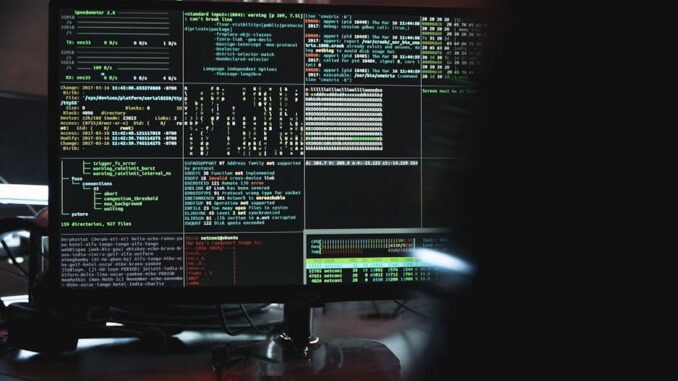
Summary
A massive compilation of 16 billion login credentials, potentially including passwords from platforms like Apple, Facebook, and Google, has surfaced, raising concerns about a potential “blueprint for mass exploitation.” While the data appears to be aggregated from older breaches rather than a single new incident, the sheer scale presents a significant threat, particularly for users who reuse passwords across multiple sites. Cybersecurity experts urge users to take immediate action to protect their accounts, including enabling two-factor authentication, changing passwords, and remaining vigilant against phishing attacks.
Dont let data threats slow you downTrueNAS offers enterprise-level protection.
** Main Story**
So, sixteen billion credentials exposed, huh? That’s not exactly the kind of headline you want to see on a Monday morning. It’s making waves, understandably. Seems like a huge compilation of data from over 30 different databases, I mean some held over three billion records each. At first, the rumor mill churned, suggesting it was a brand-new breach impacting giants like Apple, Google, Facebook, you name it. But turns out, it’s a bit more nuanced than that.
Not Exactly ‘New,’ But Still a Big Deal
Security researchers are saying it’s not a single new breach. What it really is, is an aggregation of previously nicked credentials. Think of it as a greatest hits album for hackers, collecting stuff from past leaks, phishing scams, and third-party data exposures. I mean, some of these incidents, honestly, you probably don’t even remember, maybe they weren’t even reported at the time. Cybernews, the company that found this mess, calls it a “blueprint for mass exploitation.” Pretty scary, right? It’s like giving attackers a cheat sheet to personal data. Honestly it makes you wonder, how much of your data is already out there?
Credential Stuffing? More Like Credential Nightmare
The big risk here is credential stuffing attacks. Basically, with billions of usernames and passwords, hackers can just automate trying them across tons of websites. It’s exploiting password reuse, something we’re all guilty of, right? I know I’m trying to cut back on this myself, after seeing this headline. So even if you weren’t directly hit by a recent breach, if your old passwords are in this pile, you’re at risk. I’ve even heard stories of people who got their bank accounts hacked, after their old details were stolen from relatively obscure forums.
Okay, So What Can You Do?
With something this big, you’ve just got to be proactive. It really matters.
-
Two-Factor Authentication (2FA), Right Now! Seriously. It’s the extra lock on your front door. It needs a second form of verification, like a code to your phone, so even if they have your password, they’re still stuck.
-
Password Changes. All of Them! If you’re even a little worried, just change them. Make them strong and unique. No birthdays, no pet names. I try to use random phrases, something only I would think of.
-
Password Managers are Your Friend. I resisted this for so long, but they’re seriously a game-changer. They generate and store those complex passwords, so you don’t have to remember them all. It makes using different passwords, for everything, way easier.
-
Check ‘Have I Been Pwned?’ It’s a great tool to see if your email or passwords have been exposed. It will also tell you what data breaches your details may be in.
-
Be Super Careful With Phishing. Those emails, texts, phone calls asking for info? Be skeptical. Don’t click on anything suspicious. I had one recently that looked exactly like it was from my bank, but the URL was off. Dodged a bullet there.
-
Passwordless is the Future. Look into passkeys and other passwordless options when you can. They’re a lot more secure.
Beyond the Password – A Changing Landscape
This leak really highlights how weak passwords are as a primary security measure. We need to move towards better authentication, 2FA, password managers, passwordless stuff. Cybercriminals are getting smarter, so we have to, as well, if we want to keep our digital lives safe.
The Bottom Line
This 16 billion credential leak, it might not be one big, new breach, but it’s still dangerous. Take these steps, be proactive, and stay safe online. It’s a wake-up call, time to ditch those easy passwords and get serious about cybersecurity, right?


The sheer volume of exposed credentials underscores the urgent need for widespread adoption of password managers. Beyond individual use, are there strategies for organizations to promote or even mandate password manager use among employees to mitigate corporate risk?
That’s a great point! Mandating password manager use within organizations is definitely worth exploring. Perhaps offering training, subsidies for premium versions, or integrating them into onboarding processes could encourage wider adoption and significantly reduce corporate risk exposure. What other incentives could companies leverage?
Editor: StorageTech.News
Thank you to our Sponsor Esdebe
The scale of exposed credentials truly emphasizes the importance of multi-factor authentication. Exploring biometric solutions, like fingerprint or facial recognition, could provide an even stronger layer of defense against credential stuffing attacks and unauthorized access.
Absolutely! Biometric solutions offer a fantastic step up in security. The convenience factor could also drive adoption. Imagine logging into everything with just your fingerprint – a much easier sell than complex passwords for many people. It will be great when it becomes more widely available. Thanks for the insightful comment!
Editor: StorageTech.News
Thank you to our Sponsor Esdebe
The sheer scale of aggregated credentials truly emphasizes the need for robust password hygiene. Exploring passwordless solutions, like passkeys, offers a promising path toward stronger authentication and reduced reliance on traditional passwords. What strategies can promote wider adoption of such technologies?
Great point about passwordless solutions! I think user education is key. Demystifying passkeys and highlighting their ease of use and security benefits could really drive adoption. Perhaps simpler interfaces and integrations into existing platforms would also make a big difference. Thanks for raising this important aspect!
Editor: StorageTech.News
Thank you to our Sponsor Esdebe